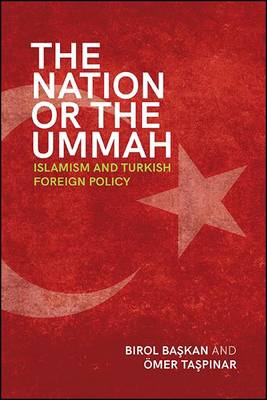
- Afhalen na 1 uur in een winkel met voorraad
- Gratis thuislevering in België
- Ruim aanbod met 7 miljoen producten
- Afhalen na 1 uur in een winkel met voorraad
- Gratis thuislevering in België
- Ruim aanbod met 7 miljoen producten
The Nation or the Ummah
Islamism and Turkish Foreign Policy
Birol Başkan, Ömer TaşpınarOmschrijving
Explains why Turkey embraced the Arab Spring despite the risk both domestically and internationally.
Turkey's enthusiastic embrace of the Arab Spring set in motion a dynamic that fundamentally altered its relations with the United States, Russia, Qatar, Egypt, Saudi Arabia, the United Arab Emirates, and Iran, and transformed Turkey from a soft power to a hard power in the tangled geopolitics of the Middle East. Birol Başkan and Ömer Taşpınar argue that the ruling Justice and Development Party's (AKP) Islamist background played a significant role in the country's decision to embrace the uprisings and the subsequent foreign policy direction the country has pursued. They demonstrate that religious ideology is endogenous to-shaping and in turn being shaped by-Turkey's various engagements in the Middle East. The Nation or the Ummah emphasizes that while Islamist religious ideology does not provide specific policy prescriptions, it does shape the way the ruling elite sees and interprets the context and the structural boundaries they operate within.
Specificaties
Betrokkenen
- Auteur(s):
- Uitgeverij:
Inhoud
- Aantal bladzijden:
- 222
- Taal:
- Engels
Eigenschappen
- Productcode (EAN):
- 9781438486475
- Verschijningsdatum:
- 1/12/2021
- Uitvoering:
- Hardcover
- Formaat:
- Genaaid
- Afmetingen:
- 152 mm x 229 mm
- Gewicht:
- 498 g

Alleen bij Standaard Boekhandel
Beoordelingen
We publiceren alleen reviews die voldoen aan de voorwaarden voor reviews. Bekijk onze voorwaarden voor reviews.












